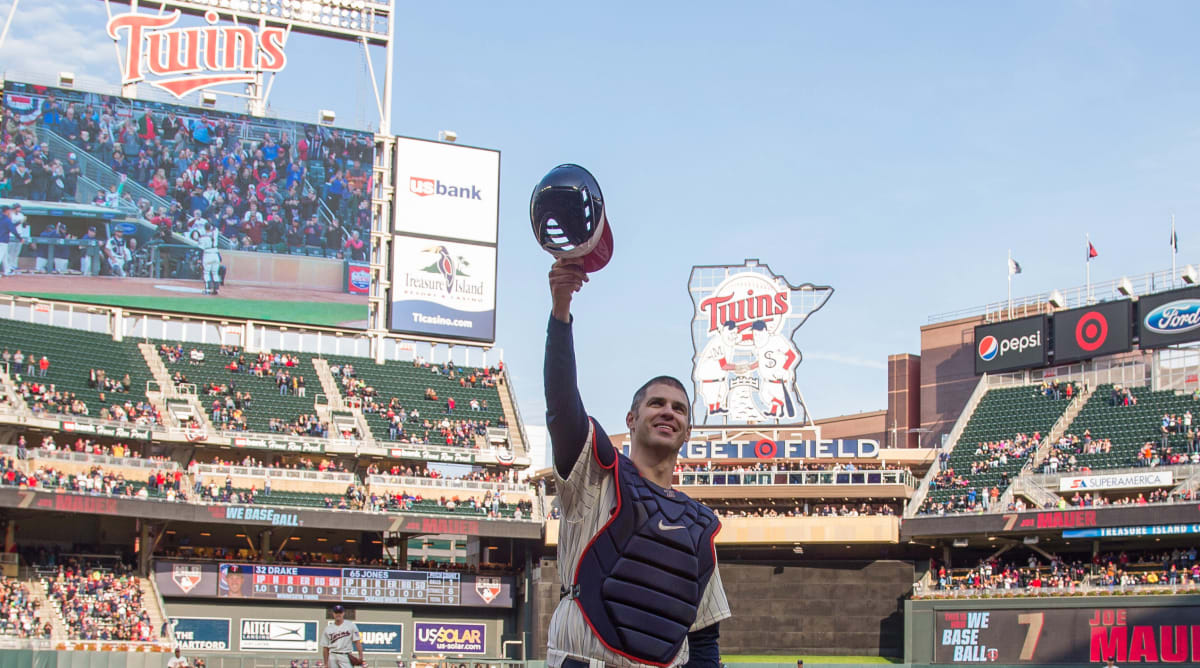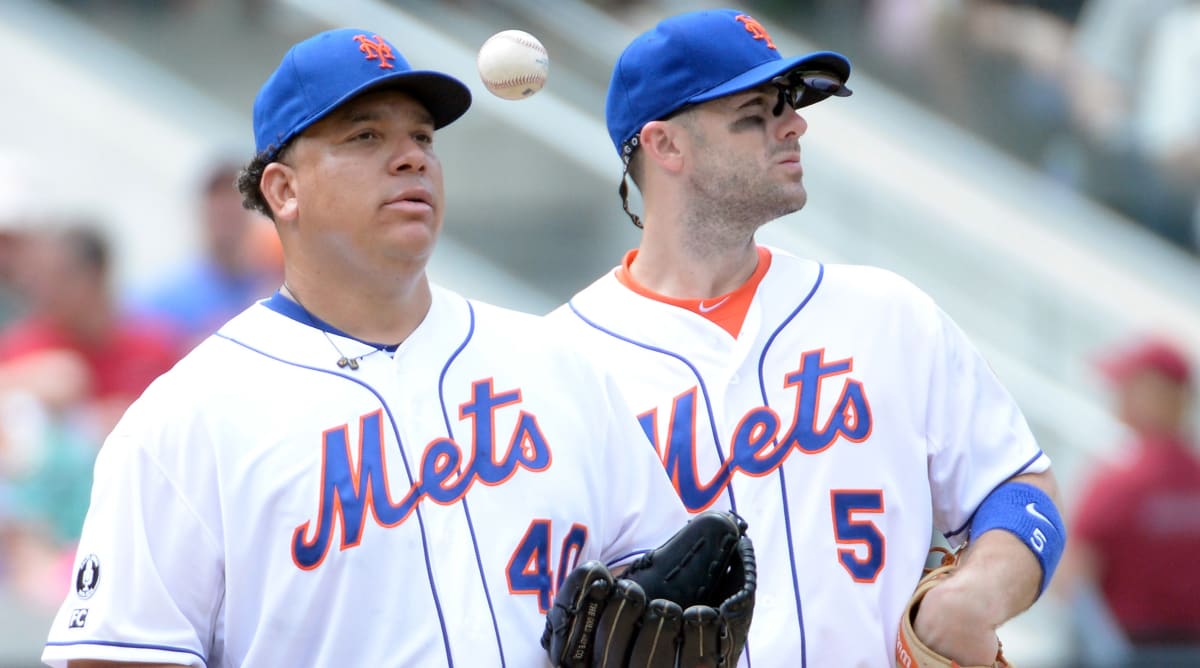The 2024 Baseball Hall of Fame ballot includes 12 newcomers. Let the debates begin.
Few candidates get on the ballot who are beyond debate. This year, Adriân Beltré is one of them, thanks to 3,166 hits, 477 homers and five Gold Gloves. Only Willie Mays reached those thresholds.
Voting is hard, however, because most candidates fall on the borderline. That’s especially true of first-time candidates this year such as Joe Mauer, Chase Utley and David Wright. Each was at some point among the best players in the game. Did their peak last long enough? Did they do enough after their peak? How do they measure against those at their position in the Hall of Fame?
The lazy way to decide is to put way too much faith in wins above replacement. The first-time WAR leaders, for instance, are Beltré (93.5), Utley (64.5) and Mauer (55.2). But WAR is not a measurement. It’s an approximation. It’s so fickle it regards Lou Whitaker as a “better” player than Reggie Jackson and Bobby Abreu a “better” player than Yogi Berra. It is to be used cautiously.
Deciding who gets my vote is more nuanced. Here is a look at the cases for and against the top borderline newcomers on the ballot, leaving WAR out of it.

Brad Rempel/USA TODAY Sports
Joe Mauer
The case for ...
In one sentence: Mauer was one of the best hitting catchers of all time and one of the game’s best hitters in his nine-year catching prime, regardless of position.
Mauer is one of 153 players who have caught 900 games or more. Here is where he ranks among those catchers when considering only their games behind the plate:
Mauer Career As Catcher Only
| Rank | Trails | ||
|---|---|---|---|
Batting Average |
.327 |
1st |
None |
On-Base Pct. |
.408 |
2nd |
Mickey Cochrane* |
OPS |
.886 |
3rd |
Mike Piazza*; Cochrane* |
In nine full seasons as catchers (2005–13), including games as a DH, Mauer slashed .323/.406/.466 with a 135 OPS+. Over those nine seasons, only Miguel Cabrera had a higher batting average, and only Mauer, Albert Pujols and Chipper Jones posted an OPS+ of 135 or higher with more walks than strikeouts.
Concussions moved Mauer from catching to first base, but he kept on hitting long enough to get 2,123 hits and still wound up playing 58% of his career games as a catcher. Mauer is one of only 49 players who played 1,500 games in the majors while spending a majority of their career behind the plate. Here is where he ranks among them:
Career Batting Average Leaders, Catcher As Primary Position
| Player | Avg. |
|---|---|
1. Bill Dickey* |
.313 |
2. Mike Piazza* |
.308 |
3. Joe Mauer |
.3063 |
4. Ernie Lombardi* |
.306 |
5. Gabby Hartnett* |
.297 |
6. Iván Rodríguez* |
.296 |
If you prefer OPS, Mauer ranks as the eighth-best primary catcher.
Need more? Mauer:
- Is the only catcher in AL/NL history to win three batting titles.
- Is the only catcher in the past 78 years with six qualified seasons with a .400 OBP. (Josh Gibson and Mickey Cochrane are the only catchers with more such seasons.)
- Earned one MVP, three Gold Gloves, five Silver Sluggers and six All-Star selections.
- Played his entire career with the Twins (1,858 games). Among primary catchers, only Yadier Molina (St. Louis) and Johnny Bench (Cincinnati) played more games exclusively with one franchise.
- Was a lifetime .306 hitter with a .388 OBP. Only 34 players have reached those thresholds (min. 7,500 PA). All but three are in the Hall of Fame: Mauer and Todd Helton, who may go in together next year, and steroid recidivist Manny Ramírez.
The case against ...
In one sentence: Mauer didn’t hit for enough power.
Among all players who spent at least half of their career catching, Mauer ranks tied for 49th in home runs with Kurt Suzuki (143) and 16th in RBIs, just ahead of Benito Santiago.
Chase Utley
The case for ...
In one sentence: In his prime he was a rare impact bat at second base.
From 2005–10, Utley slashed .298/.388/.523, made the All-Star team five of those six years and received MVP votes in five of those six years, though he finished no higher than seventh.
Utley posted seven qualified seasons with an OPS+ of 120 or better, which is more than Craig Biggio or Ryne Sandberg (six) but less than nine other second basemen, including Jeff Kent (eight).
His best Hall comp is probably Sandberg:
| G | HR | H | RBIs | Avg. | OBP | SLG | OPS+ | |
|---|---|---|---|---|---|---|---|---|
Utley |
1,937 |
259 |
1,025 |
1,885 |
.275 |
.358 |
.465 |
117 |
Sandberg |
2,164 |
282 |
1,061 |
2,386 |
.285 |
.344 |
.452 |
114 |
The case against ...
In one sentence: His career doesn’t have enough volume.
Even his comp to Sandberg doesn’t quite measure up when it comes to volume.
Among Hall of Fame second basemen, Jackie Robinson is the only one voted in by the writers with fewer than Sandberg’s 2,386 hits—and Utley is 501 hits short of Sandberg.
Counting those players elected by committees, no second baseman in the past 67 years has made the Hall of Fame with fewer than 2,000 hits.
Bartolo Colón
The case for ...
In one sentence: Colón was Jack Morris with a Cy Young Award (but without the postseason legacy).
Colón was a durable pitcher who won 247 games and lasted 21 seasons. He won the Cy Young in 2005 with a league-best 21 wins, which was a big deal back in the day. Here is how he stacks up with Morris:
| W-L | ERA | IP | ERA+ | FIP | QS% | |
|---|---|---|---|---|---|---|
Colón |
247–188 |
4.12 |
3,461.2 |
106 |
4.15 |
56% |
Morris |
254–186 |
3.90 |
3,824 |
105 |
3.94 |
55% |
The case against ...
In one sentence: He had too few elite seasons.
Colón never finished in the top three in Cy voting other than 2005. He finished in the top five in ERA only twice. And while he is somewhat comparable to Morris (but with fewer wins and innings), he doesn’t stand out among some contemporaries:
| W-L | ERA | ERA+ | |
|---|---|---|---|
Tim Hudson |
222–133 |
3.49 |
120 |
Mark Buehrle |
214–160 |
3.81 |
117 |
Andy Pettitte |
256–153 |
3.85 |
117 |
CC Sabathia |
251–161 |
3.74 |
116 |
Bartolo Colón |
254–188 |
4.12 |
106 |
Jamie Moyer |
269–209 |
4.25 |
103 |

Robert Deutsch/USA TODAY Sports
Matt Holliday
The case for ...
In one sentence: A middle-of-the-order slugger who could also hit for average, he is the outfield version of Fred McGriff.
Here are the comps to McGriff, the newly minted Hall of Famer:
| Avg. | SLG | OPS | OPS+ | |
|---|---|---|---|---|
Holliday |
.299 |
.510 |
.889 |
132 |
McGriff |
.284 |
.509 |
.886 |
134 |
But this is where you must be careful with rate stats. McGriff outhomered Holliday 493–316, had 882 more total bases and 394 more hits.
Holliday did win a batting title, made seven All-Star teams and won four Silver Sluggers. Yes, he played in Colorado for six years, but his OPS+ was higher after he left the Rockies (133–131).
One footnote to Holliday’s candidacy: On Sept. 17, 2018, Holliday was a lifetime .300 career hitter (to be technical, .2995). He went 0-for-11 over his final seven games, all but two of them off the bench and finished at .299.
Among Hall eligibles, only two lifetime .300 hitters with 2,000 hits, a .500 slugging percentage and an OPS+ of 132 are not in the Hall: Ramírez and Helton.
The case against ...
In one sentence: His peak and longevity are not quite elite.
Holliday finished in the top five in MVP voting once. The guy he most resembles is not McGriff but Bob Johnson, a forgotten outfielder who played on some bad Philadelphia A’s teams in the 1930s:
| H | HR | RBIs | TB | Avg. | OPS | OPS+ | |
|---|---|---|---|---|---|---|---|
Holliday |
2,096 |
316 |
1,220 |
3,576 |
.299 |
.889 |
132 |
Johnson |
2,051 |
288 |
1,283 |
3,401 |
.296 |
.899 |
139 |
Johnson was on a Hall of Fame ballot twice. He received one vote each time.
David Wright
The case for ...
In one sentence: Wright was one of the best players in the game over a nine-year span (2005–13).
Over those nine seasons, Wright slashed .302/.384/.505 with 208 homers and 177 stolen bases. He was the only player in baseball over those years with 200 homers and 150 steals. At age 30, he was close to tracking the career of Chipper Jones:
Through Age 30
| G | HR | RBIs | SB | Avg. | OPS | OPS+ | All-Star Selections | |
|---|---|---|---|---|---|---|---|---|
Wright |
1,374 |
222 |
876 |
183 |
.301 |
.888 |
137 |
7 |
Jones |
1,252 |
253 |
837 |
114 |
.309 |
.949 |
143 |
5 |
And then spinal stenosis derailed his career. He played in only 211 more games, slashing .265/.339/.395.
Wright finished with 242 homers and 196 stolen bases. Only one other third baseman reached those thresholds: George Brett.
The case against ...
In one sentence: The volume to his career is lacking.
Wright finished with 1,777 hits (35th among third basemen) and 242 homers (tied for 21st with Sal Bando and Kyle Seager).







